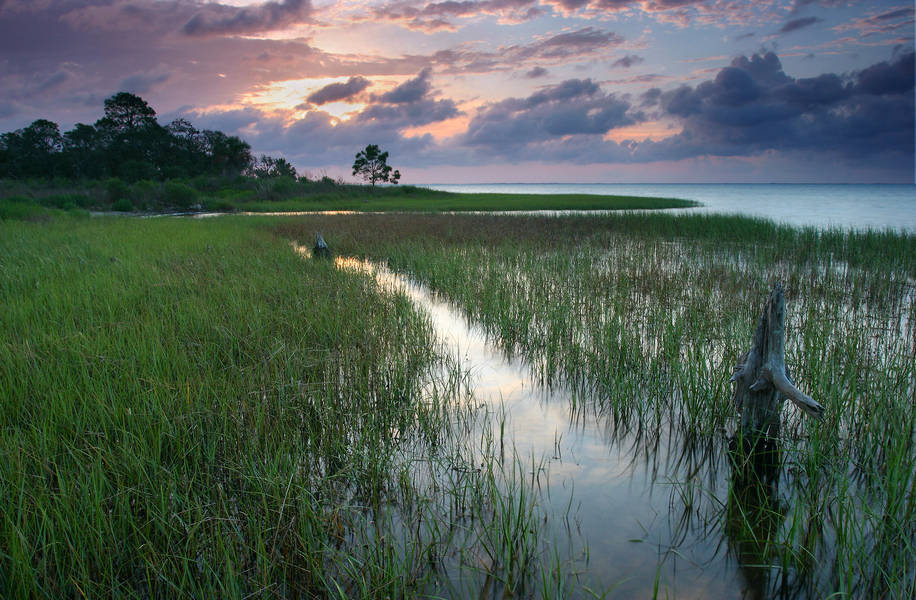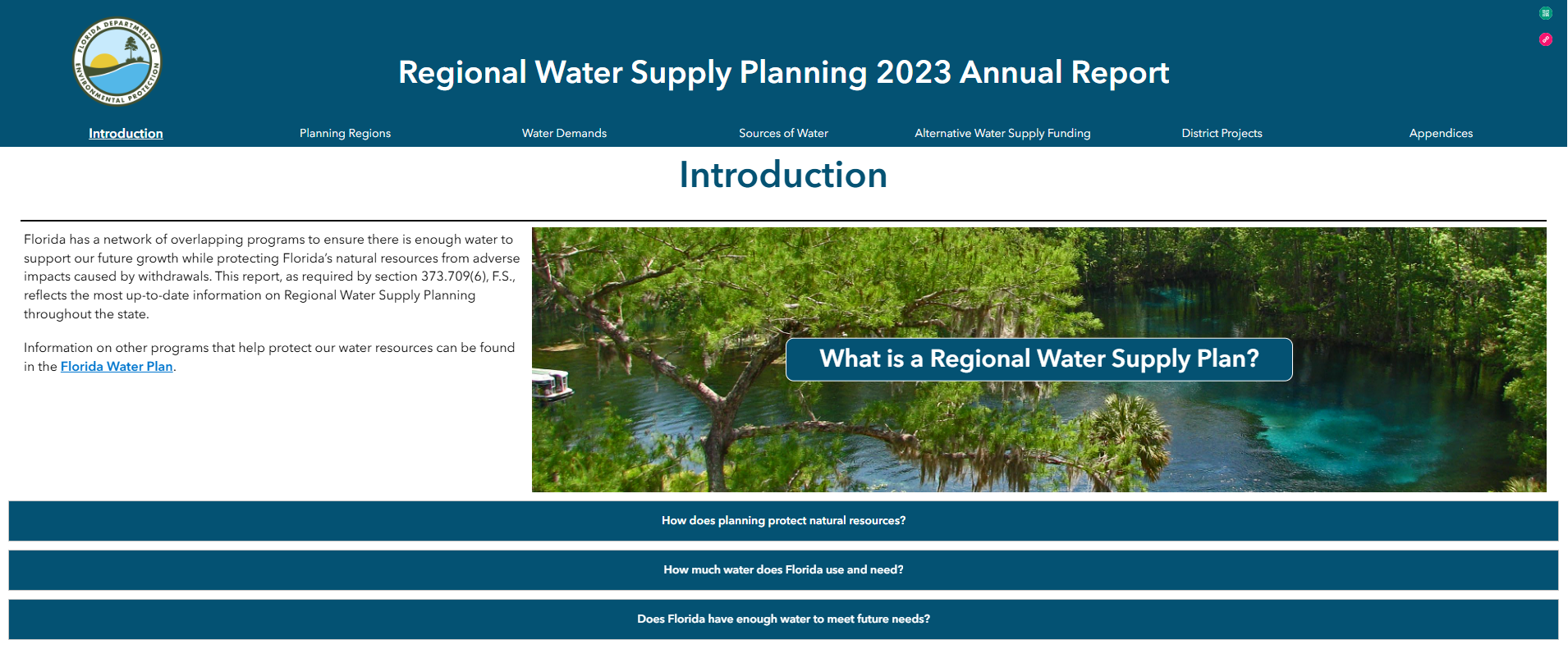The Florida Water Resources Act, Chapter 373, F.S., establishes that all water in Florida, on the surface or in the ground, is a public resource managed by the department and the five water management districts. Florida's water supply comes from the bountiful systems of rivers, streams, wetlands, lakes, springs, aquifers and estuaries across the state. Florida's fresh water supply is used for public water supply, agricultural irrigation, commercial/industrial/institutional uses, domestic and small public supply, recreational irrigation, and power generation.
Additionally, Florida's natural environment also needs sufficient water supply to function properly. Water resource managers are tasked with the responsibility of balancing the needs of Florida's growing population with the needs of the natural systems by creating dynamic plans that appropriately allocate the state's limited water resources.
Annual Status Report
Pursuant to section 373.709, Florida Statutes, the Florida Department of Environmental Protection’s Office of Water Policy has published its 2023 Annual Status Report on Regional Water Supply Planning. As with last year, the department is proud to utilize an interactive format that allows easy access to both statewide water supply data and projects being implemented to achieve future water demands. For convenience, a troubleshooting guide for the web experience is also available.
Regional Water Supply Plans
Every five years, each district creates a Regional Water Supply Plan. Regional Water Supply Plans include a water supply and water resource development component; a funding strategy for water resource development projects; consideration of how the water supply development project options serve the public interest or save costs; technical data to support the plan; a list of water bodies for which minimum flows and levels have been established or will be established; recovery or prevention strategies for the water bodies not meeting their minimum flows and/or levels; and a list of water reservations. Without these planning efforts, the districts project that existing sources of water will not adequately meet the reasonable-beneficial needs for the next 20 years.
- Water Supply Development. In certain areas, Florida's current fresh water supply is projected to be unable to meet all of the growing needs of Floridians in the future without the development of alternative water supply projects. Water resource managers therefore use water conservation and alternative water supply sources to augment the traditional water supply sources. Some of these alternative water supply sources include but are not limited to:
- Reclaimed water
- Brackish ground water
- Desalination of seawater
The districts are also investigating the possibility of increasing water storage capabilities through surface reservoirs and aquifer storage and recovery (ASR) facilities as well as the feasibility of recharging the aquifer by using storm water runoff and reclaimed water. Reclaimed water, however, remains the most frequently utilized method for water supply development. An inventory of reuse of reclaimed water in Florida is updated annually.
Read more about alternative water supply.
- Water Resource Development. Water resource development is the formulation and implementation of regional water resource management strategies that include:
- The collection and evaluation of surface water and groundwater data
- Structural and nonstructural programs to protect and manage water resources
- The development of regional water resource implementation programs
- The construction, operation and maintenance of major public works facilities to provide for flood control, surface and underground water storage, and groundwater recharge augmentation
- Related technical assistance
The Minimum Flow and Minimum Water Level and Reservations programs are an example of a water resource development program.
Alternative Water Supply Grants
For information on the Department's funding opportunities for alternative water supply projects, please visit the Alternative Water Supply Grants page.



